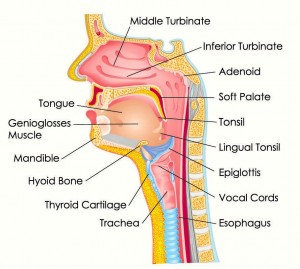Surgical ENT Solutions Explained: When Is It Necessary?
Surgical ENT Solutions Explained: When Is It Necessary?
Blog Article
Exploring the Area of Otolaryngology: What to Anticipate When You Get In Touch With an ENT
Otolaryngology, commonly described as ENT, incorporates the medical diagnosis and treatment of throat, nose, and ear disorders. For those experiencing relevant problems, getting in touch with an ENT specialist can give clearness and alleviation. Comprehending what to expect throughout such appointments is crucial for efficient communication and care. This introduction will lay out key aspects of the ENT experience, consisting of common factors for visits and the processes involved in medical diagnosis and therapy.

Comprehending Otolaryngology: A Review
Otolaryngology, often referred to as ENT (Nose, ear, and throat) medication, is a specific branch of medicine that concentrates on the diagnosis and treatment of problems affecting these important areas of the human body. This field encompasses a large range of disorders, including those pertaining to hearing, balance, respiratory system feature, and speech. Otolaryngologists are educated to handle both medical and clinical therapies, making use of advanced strategies and modern technologies. Their experience expands past conventional ailments, resolving concerns such as allergic reactions, sinus infections, and hearing loss. Furthermore, they play an essential duty in the administration of head and neck cancers, supplying complete care customized to specific client needs. On the whole, otolaryngology remains vital for maintaining health and wellness and lifestyle in affected people.
Typical Factors to See an ENT Expert
Numerous individuals seek the competence of an ENT professional for a selection of factors, reflecting the diverse nature of conditions that influence the throat, ear, and nose. Typical problems include chronic sinus problems, which often leads to persistent nasal congestion and face discomfort. Allergic reactions and their linked symptoms, such as sneezing and itching, also prompt check outs to these experts (Voice). Hearing loss, whether steady or abrupt, is one more considerable reason for assessment. Additionally, individuals may seek examination for throat conditions, including consistent hoarseness or swallowing difficulties. Rest apnea, identified by cut off breathing during rest, is often dealt with by ENT specialists. Each of these problems highlights the significance of specialized care in taking care of complicated ENT-related health concerns
Planning for Your ENT Appointment
When planning for an ENT visit, it is important to gather pertinent info and think about any specific concerns. Clients need to put together a detailed medical history, consisting of previous ear, nose, or throat concerns, surgical procedures, and present medications. Documenting signs and symptoms-- such as regularity, duration, and extent-- can give useful understandings for the ENT specialist. Furthermore, people ought to prepare a listing of questions they desire to ask, guaranteeing that all problems are dealt with during the visit. Bringing along any type of pertinent medical documents or examination outcomes can additionally assist the ENT in recognizing the person's condition. Finally, people should confirm their visit information, consisting of time, date, and place, to minimize any type of final complication. Proper preparation can improve the performance of the consultation and lead to better outcomes.
What to Expect Throughout the Consultation
As the appointment starts, the person can anticipate to engage in a complete conversation with the ENT expert regarding their symptoms and case history. The specialist will certainly ask about the period, regularity, and intensity of signs such as hearing loss, nasal congestion, or aching throat. Furthermore, the individual's previous clinical conditions, medicines, and any type of relevant family history will certainly be evaluated, aiding the expert in creating a full understanding of the patient's health. The ENT might likewise ask about lifestyle variables, such as exposure to toxic irritants or allergens. This open dialogue develops a structure for the examination, ensuring that the individual's issues are dealt with and establishing the stage for any needed examinations or recommendations for therapy.
Diagnostic Examinations and Procedures in Otolaryngology
A variety of analysis examinations and treatments are crucial in otolaryngology to accurately evaluate and identify problems impacting the ear, throat, and nose. Usual examinations include audiometry, which measures hearing feature, and tympanometry, evaluating middle ear pressure. Nasal endoscopy allows visualization of the nasal passages and sinuses, while laryngoscopy examines the throat and singing cords. Imaging strategies, such as CT scans and MRIs, supply thorough views of head and neck structures. Allergy testing might additionally be carried out to identify triggers for sinus or respiratory problems. These analysis tools make it possible for ENT specialists to establish an extensive understanding of individuals' conditions, guaranteeing tailored and efficient monitoring strategies. Correct medical diagnosis is vital for effective therapy end results in otolaryngology.
Treatment Alternatives Supplied by ENT Specialists
ENT professionals supply a selection of therapy alternatives customized to attend to specific problems influencing the nose, throat, and ear. These treatments range from conservative approaches, such as medicine and lifestyle modifications, to even more intrusive procedures. Allergic reactions may be handled with antihistamines or immunotherapy, while persistent sinusitis might require nasal corticosteroids or sinus surgical procedure. For hearing loss, ENT specialists index frequently advise listening devices or medical treatments like cochlear implants. In cases of throat problems, choices can include speech treatment or procedures to eliminate obstructions. In addition, they may offer support for taking care of sleep apnea, consisting of the important source usage of CPAP gadgets or medical treatments. Overall, the goal is to improve clients' high quality of life with personalized treatment and effective treatment methods.
When to Seek Follow-Up Treatment With an ENT
When to seek follow-up treatment with an ENT expert is essential for managing continuous symptoms or problems associated to nose, ear, and throat problems, acknowledging. Patients ought to consider setting up a follow-up appointment if signs linger in spite of first treatment, such as chronic ear discomfort, nasal congestion, or throat discomfort. Adjustments in hearing, equilibrium issues, or uncommon nasal discharge might also require more examination. In addition, if a patient experiences adverse effects from suggested medications or has gone through an operation, follow-up treatment is important to keep track of recuperation and address any issues. Prompt assessments can ensure efficient monitoring of problems, prevent prospective problems, and offer assurance pertaining to one's wellness. Looking for follow-up treatment promotes proactive health management in otolaryngology.
Often Asked Questions

What Qualifications Should I Search for in an ENT Specialist?
When looking for an ENT specialist, one must seek board qualification, relevant experience, and strong person reviews. best way to get rid of congestion Furthermore, reliable communication abilities and a compassionate approach can considerably enhance the total therapy experience.
Just how Do I Choose the Right ENT for My Requirements?
Selecting the right ENT expert entails assessing their certifications, experience, and patient evaluations (Sinus). It is vital to consider their interaction design and approach to therapy, guaranteeing they align with the individual's particular wellness needs and preferences
Are There Any Kind Of Risks Related To ENT Procedures?
The dangers related to ENT procedures may consist of infection, blood loss, anesthetic problems, and prospective damage to surrounding frameworks. Clients should talk about these dangers with their doctor to recognize private problems and warranty educated choices.
Just How Can I Manage Anxiety Before My ENT Appointment?
To take care of anxiety prior to a consultation, individuals can practice deep breathing workouts, envision favorable end results, prepare concerns beforehand, and seek support from close friends or family members, promoting a feeling of peace of mind and calmness.
What Should I Do if I Experience Negative Effects From Therapy?
The person ought to quickly report them to their healthcare provider if side results from treatment occur. Changes to treatment or additional interventions may be necessary to assure security and performance in managing their condition - Otolaryngologist. As the examination begins, the individual can expect to engage in an extensive discussion with the ENT expert concerning their symptoms and clinical history. These diagnostic tools make it possible for ENT specialists to establish an extensive understanding of clients' conditions, making sure tailored and efficient administration plans. ENT experts offer a range of treatment choices tailored to deal with details problems influencing the throat, nose, and ear. When seeking an ENT professional, one must look for board accreditation, pertinent experience, and solid individual reviews. Selecting the appropriate ENT professional involves assessing their certifications, experience, and person reviews
Report this page